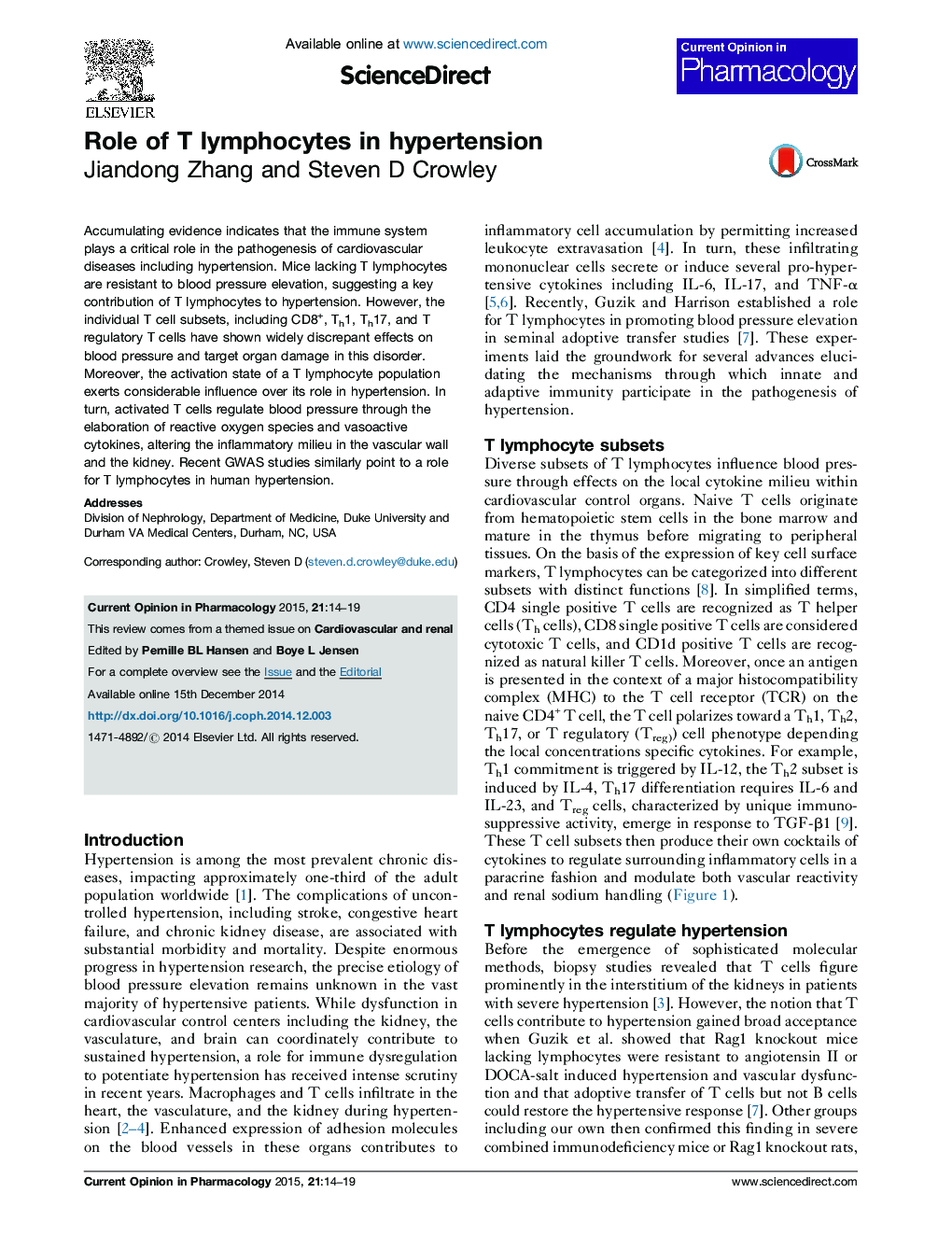| Article ID | Journal | Published Year | Pages | File Type |
|---|---|---|---|---|
| 5825936 | Current Opinion in Pharmacology | 2015 | 6 Pages |
â¢Mice lacking functional T lymphocytes are protected from hypertension.â¢Th17 cells augment whereas Treg cells limit blood pressure elevation.â¢T cell activation by dendritic cells enhances the chronic hypertensive response.â¢T cells raise blood pressure by causing vascular dysfunction and sodium retention.
Accumulating evidence indicates that the immune system plays a critical role in the pathogenesis of cardiovascular diseases including hypertension. Mice lacking T lymphocytes are resistant to blood pressure elevation, suggesting a key contribution of T lymphocytes to hypertension. However, the individual T cell subsets, including CD8+, Th1, Th17, and T regulatory T cells have shown widely discrepant effects on blood pressure and target organ damage in this disorder. Moreover, the activation state of a T lymphocyte population exerts considerable influence over its role in hypertension. In turn, activated T cells regulate blood pressure through the elaboration of reactive oxygen species and vasoactive cytokines, altering the inflammatory milieu in the vascular wall and the kidney. Recent GWAS studies similarly point to a role for T lymphocytes in human hypertension.
